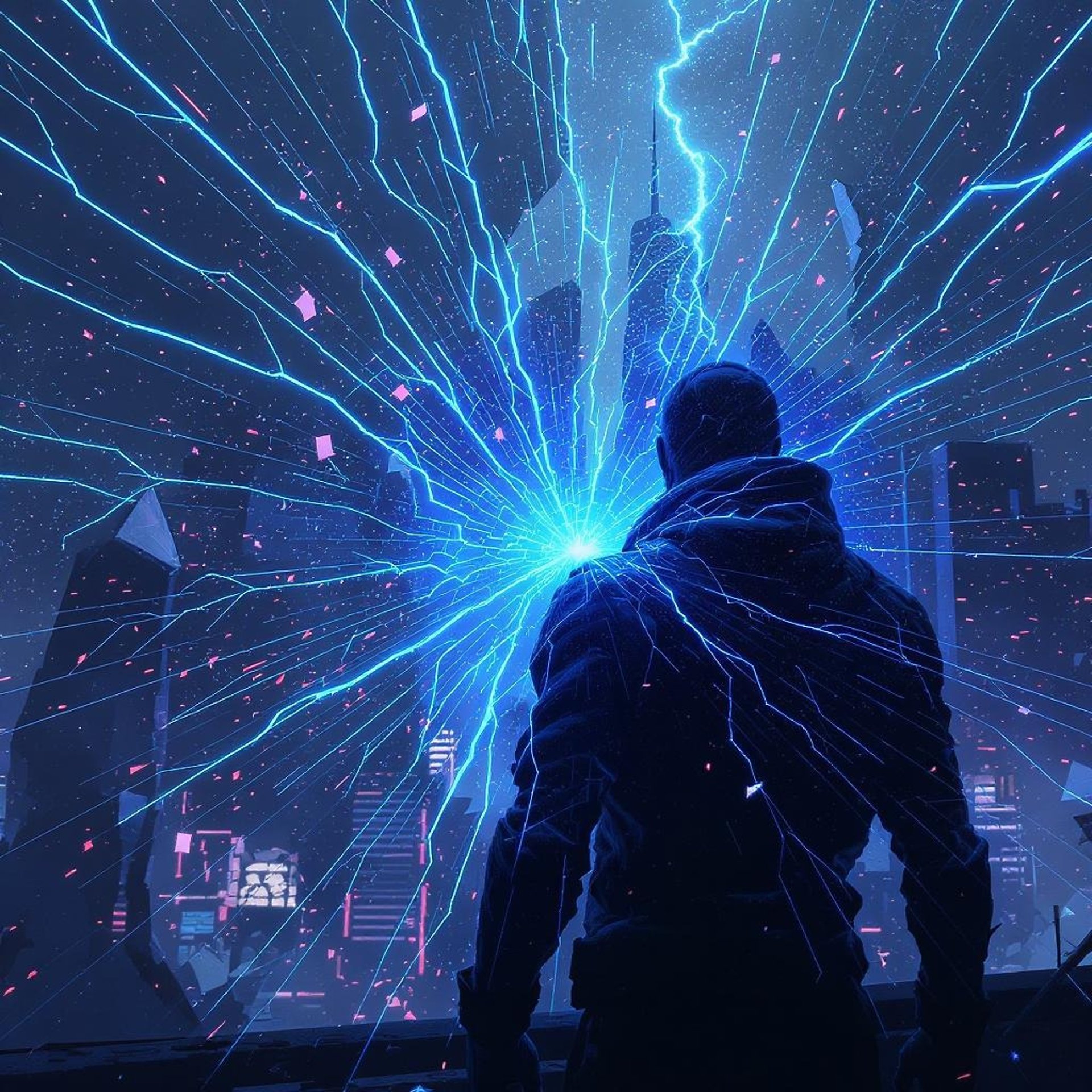
Reclaiming Mental Autonomy: How to Take Back Control in the Age of Digital Manipulation and Algorithmic Influence
Discover powerful, practical strategies to reclaim your mental autonomy in today's hyper-connected world. This in-depth guide explores how digital manipulation, algorithmic bias, and the attention economy impact your mind — and reveals actionable steps to protect your focus, boost awareness, and regain control over your thoughts. Perfect for anyone seeking freedom from tech dependence, misinformation, and digital overload.


From the first flicker of a recommendation banner to the invisible hand guiding our late‑night news feeds, algorithms have woven themselves into the very fabric of our choices. Once the domain of philosophers and mystics, the question “Do I choose—or am I chosen?” has become a practical dilemma. In today’s digital age, our autonomy is constantly tested by recommendation engines, metadata mining, and perpetual surveillance. This article dives deep into the philosophical debate around free will in an algorithmically governed world, unveils the “digital panopticon,” and equips you with strategies to reclaim mental sovereignty.
Awakening in the Algorithm
Imagine waking up to a world where every thought you almost had, every desire you nearly felt, is anticipated and served to you. A world where secrets no longer exist, and every click, every pause, every lingered glance is logged, parsed, and used to predict—and perhaps manipulate—your next move. This is not a dystopian fantasy; it is the algorithmic reality we inhabit. As digital infrastructures promise convenience, they quietly erode the boundaries of our private selves. Welcome to the Algorithmic Panopticon, where recommendation engines replace conscience, metadata becomes omniscient jailer, and free will teeters on the brink of extinction.
Algorithms as Invisible Puppeteers
Behind every swipe, every “next episode,” and every “recommended for you” lies an ecosystem of algorithms working in concert—silent conductors orchestrating your digital experience. These recommendation systems, dressed in technical jargon, wield tremendous influence over what you see, hear, and ultimately choose.
Collaborative Filtering: Your Digital Doppelgängers
Imagine walking into a vast library where an unseen librarian closely watches thousands of patrons. Whenever someone with tastes similar to yours—call them your digital doppelgänger—checks out a book, the librarian whispers to you, “You might also like this.” Netflix and Spotify perfected this art: by grouping users into clusters based on past behavior (“people who watched Stranger Things also binged Black Mirror”), they craft a feedback loop that feels eerily intuitive.
But what seems like serendipity is mathematically precise, steering you toward content that mirrors your past choices—and subtly narrowing the range of what you might discover.
Content‑Based Filtering: Echoes of the Familiar
Now picture a machine that reads every word of every article you lingered on, parses the tags on every photo you admired, and catalogues the styles of music you paused to tap your foot to. It then finds new items with similar signatures—keywords, metadata tags, even color palettes in images—and places them before your eyes.
The effect? A hall of mirrors where every recommendation reflects what you already know, reinforcing your tastes and opinions. Over time, this echo chamber hardens, making the unfamiliar feel alien and the familiar irresistibly comforting.
Deep Learning Models: Predicting Your Next Thought
At the cutting edge sit deep learning models—layered neural networks trained on petabytes of data. They digest clickstreams (every link you click), watch time (how long you stayed on that cooking tutorial), and scroll depth (how far you swiped through that Twitter thread) to sculpt a probabilistic profile of your desires.
Within milliseconds, these models predict, with uncanny precision, which thumbnail will hook your attention next. It’s not magic; it’s pattern recognition on industrial scales. The result is a personalized tide of content that pulls you deeper into the platform’s currents, making the idea of “random discovery” a quaint relic of the past.
Why It Matters
When recommendation engines become our primary guides, choice ceases to be an open field and becomes a corridor with ever‑narrowing walls. Each algorithmic suggestion is designed not for your well‑being but for maximum engagement—and ultimately, profit.
As these systems refine their accuracy, they lock you into a feedback loop: your past choices inform your future ones, reinforcing the cycle. Autonomy doesn’t vanish overnight; it erodes in the spaces between each “Yes, show me more.” Recognizing these invisible puppeteers is the first step toward reclaiming the reins of your own digital destiny.
The Digital Panopticon: From Bentham to Big Data
Long before our smartphones became extensions of ourselves, the concept of constant surveillance took physical form in Jeremy Bentham’s prison design. Today, that architecture has shifted from stone walls and iron bars into the invisible circuitry of the internet—yet the psychological impact remains eerily the same.
Origins of the Panopticon
Jeremy Bentham’s 18th‑Century Vision
Picture a perfect circle of cells, each cell opening toward a central watchtower. Bentham’s Panopticon relied on architectural ambiguity: prisoners could never tell if the warder in the tower was watching, so they assumed they were always observed. This uncertainty forced them to internalize discipline—self‑policing replaced the need for constant physical oversight. The genius of Bentham’s design lay not in branding captives but in manufacturing consent through the threat of unseen eyes.
Michel Foucault’s Modern Mirror
Two centuries later, Michel Foucault reimagined Bentham’s experiment not as a prison blueprint, but as a metaphor for modern power. In Discipline and Punish (1975), Foucault argued that surveillance had seeped into every corner of society—schools, hospitals, workplaces—shaping behavior without overt force. The Panopticon, he suggested, isn’t just brick and mortar; it’s an ideology that transforms observability into control, making free will bend toward conformity.
The Algorithmic Panopticon Defined
As society migrated online, the Panopticon shed its physical trappings and donned code. Welcome to the Algorithmic Panopticon, where your everyday devices and platforms stand in for Bentham’s watchtower—and you are both inmate and guard.
Metadata Mining
Every digital asset you create—photos, posts, playlists—carries a hidden payload of metadata. A photograph’s EXIF data reveals the exact time you snapped it, the GPS coordinates of the scene, the camera model, even the aperture and shutter speed. Social platforms harvest this metadata to map your routines: which cafés you frequent, when you exercise, the route you jog. These innocuous details become nodes in a sprawling, decentralized surveillance web.
Continuous Monitoring
There is no “off” switch in this Panopticon.
Cookies and Trackers: Tiny snippets of code follow your browser across sites, stitching together a comprehensive portrait of your online behavior.
In‑App Sensors: Fitness apps log your heart rate; keyboard extensions record your typing speed; smart assistants note your tone of voice.
Background Permissions: Location services, microphone access, and even accelerometer data work silently, updating your profile in real time.
Whether you’re shopping, commenting, or just idling on a webpage, you leave a trail of breadcrumbs that feeds an insatiable data‑hungry machine.
Behavioral Profiling
What happens to all this metadata and monitoring? It’s collated into behavioral dossiers—detailed blueprints of your psyche. Think of it as a dossier that contains:
Political Leanings: Inferred from the articles you read, the pages you like, the ads you scroll past.
Emotional Triggers: Identified by measuring which headlines provoke clicks, shares, or extended attention.
Vulnerabilities: Exposed when you repeatedly engage with content on anxiety, self‑improvement, or personal finance.
These dossiers then power microtargeting campaigns—ads, news feeds, and recommendations tailored to push your emotional buttons. Suddenly, choice becomes not an expression of free will but a response to invisible nudges.
In today’s digital panopticon, every app is a cell block; every algorithm, a watchtower. We navigate this landscape both as subjects under observation and agents tasked with our own regulation. Recognizing the architecture of this surveillance is the first step toward reclaiming the spaces where our true autonomy can flourish.
The Cost of Constant Exposure
In a world where every action is trackable and every pause is meaningful, exposure is no longer a glitch in the system — it's the system itself. What once was private by default is now public by design. We are watched not with eyes, but with models; not by people, but by predictions. And this constant exposure comes with a cost — one we are only beginning to understand.
🧠 Erosion of Privacy
Today, 74% of internet users express anxiety over their personal data being shared or sold without consent. But the deeper concern isn't just unauthorized access — it's how easily that data can be weaponized.
Every metadata trail you leave — timestamps, GPS coordinates, browser history, click duration — is a puzzle piece. Alone, they seem meaningless. Together, they paint a detailed portrait of your habits, routines, desires, and fears.
Governments and corporations don’t need to ask who you are. They already know who you’ve become.
🎯 Narrowing of Perspectives
Algorithms are designed to please. They feed you content you’ll click on, engage with, and return for. But in doing so, they also filter out discomfort, contradiction, and complexity.
This so-called “personalization” reinforces your current beliefs, creating filter bubbles that isolate you from challenging perspectives.
The consequences go beyond annoyance — they fuel political polarization, radicalization, and social fragmentation. What was once a platform for discovery becomes a hallway of mirrors.
🧩 Decision Fatigue & Learned Helplessness
Paradoxically, the internet offers us too much. Every search returns millions of results. Every app promises the “best” answer. The paradox of choice kicks in: with too many options, we freeze. We outsource judgment.
That’s when the algorithm steps in: “We’ve selected this for you.” You click, not out of desire, but out of mental exhaustion.
Over time, this breeds learned helplessness — the quiet internal belief that it’s better to be guided than to choose. That resistance is pointless. That convenience is worth the cost of agency.
Reclaiming Mental Autonomy: Strategies for the Modern Mind
You are not alone. Feeling overwhelmed by notifications, lost in endless recommendations, or mentally drained after hours of passive scrolling is not a personal failure — it’s the predictable outcome of a system designed to keep you captive. But there are ways out. In the chaos of algorithmic noise, it’s still possible to reclaim small territories of your mind. This is a call for silent discipline, for internal rebellion — a personal resistance to reclaim your cognitive space.
🔐 Metadata Discipline: Training Your Digital Footprint
Every click leaves a trace — but a trace is not a fate.
Opt-Out & Audit: Make it a habit to regularly review and delete cookies. Use browser extensions like uBlock Origin, Privacy Badger, or switch to privacy-focused browsers like Brave or Firefox Focus to limit invisible tracking.
Swiss-Cheesing Your Data: When an app doesn’t need your real identity, don’t give it. Use ambiguous or false information where appropriate. The more confusing your digital trail, the less predictable you become.
🧭 Curate Your Information Diet: Choose What Feeds Your Mind
You are what you consume — and your feed is not neutral.
Cross-Platform Rotation: Break the algorithmic echo chamber by rotating your information sources. Switch between international news, independent blogs, niche podcasts. Diversity of input builds mental resilience.
Scheduled Deep Dives: Set aside blocks of time for offline or ad-free content — read books, watch documentaries without interruptions, explore topics with full presence. Let your mind breathe and think without being pulled by external stimuli.
🧘 Mindful Interaction: Use Technology Without Being Used
Attention is the new currency. Where you spend it defines your life.
Pause Before Click: Before tapping “Recommended for You,” pause. Breathe. Ask: does this reflect my intention — or the system’s? Practicing a conscious 10-second delay can begin to rewire your automatic behaviors.
Intentional Distraction: Use tools like Forest, Freedom, or your phone’s Focus Mode to block distractions. Create moments of real concentration, where you guide your mind instead of being dragged by it.
🛰️ Digital Panopticon Awareness: Name the Invisible Enemy
The first step to regaining control is seeing clearly what’s watching you.
Learn the Jargon: Get familiar with terms like dark patterns (manipulative design tricks), microtargeting (ultra-specific behavioral segmentation), and surveillance capitalism (economic model based on extracting and selling personal data). Naming the system is part of resisting it.
Share to Empower: Teach the people around you. Show them how to disable location tracking, use VPNs, question personalized ads. Collective awareness weakens the panoptic grip. When many begin to see, the illusion of control collapses.
✊ The First Freedom Is Awareness
These are not ultimate solutions — they are trenches in the war for autonomy.
In a world where everything fights for your attention, cultivating presence, intention, and clarity is an act of quiet revolution.
The algorithm may know your patterns — but it will never feel what you feel when you choose to resist.
Reflection: Is Free Will Untenable?
The determinist argument claims that if our neural and environmental inputs are fully known, our choices become predictable. Modern algorithms have turned this philosophical thought experiment into reality. Yet, human agency persists in the gap between prediction and action—the moment of self‑reflection when we choose to override the prompt.
Existential Rebellion
Like Camus’ Sisyphus, we find meaning in the struggle itself. Each conscious refusal to click becomes an act of defiance.Algorithmic Algo‑rhyme
By understanding the patterns we’re fed, we can compose our own “mistakes,” thereby re‑introducing spontaneity into the system.
Thus, free will isn’t dead—it’s a muscle we must continuously exercise against the algorithms that seek to tone it out.
Conclusion: Toward a Sovereign Digital Self
We stand at the crossroads of convenience and autonomy. Algorithms promise to simplify our world, yet they quietly script our choices, line by line. The digital panopticon won’t vanish overnight—but neither will our capacity for self‑determination. By mastering the language of metadata, resisting the seduction of seamless recommendations, and embracing reflective rebellion, we reclaim the space between prompt and response. In that space lies our freedom.
Embrace the challenge. Each time you question the whisper of an algorithm, you reaffirm your sovereignty. The end of free will is not yet written—it is drafted in real time by every click, every pause, and every deliberate choice.
🤖 FAQ — Questions You Didn’t Know You Had
🔍 What Is the “Algorithmic Panopticon” and How Does It Affect Me?
The term originates from a classic surveillance concept where individuals feel watched at all times—and therefore self-correct their behavior. In the digital world, this manifests through algorithms tracking your habits, interests, location, and even emotional patterns, subtly shaping your decisions without your awareness. You’re being watched without knowing who’s watching—and you adjust without knowing why.
🧠 Do I Still Have Free Will If Everything I See Is Algorithmically Filtered?
Yes—but it’s under siege. When your choices are continually shaped by “personalized recommendations,” your perception of freedom narrows. Free will doesn’t vanish overnight; it erodes quietly, every time you accept what’s fed to you without question. Reclaiming it means consciously choosing the unexpected and resisting passivity.
📱 What Are Metadata and Why Do They Matter?
Metadata are the invisible footprints behind every digital action: time, location, device, duration, interaction speed, etc. On their own, they seem harmless—but together, they form detailed behavioral profiles. These profiles fuel the algorithmic surveillance system, predicting what you’ll click, buy, or believe—before you do.
🧩 How Do Algorithms Know So Much About Me?
Algorithms learn from everything you do online: what you click, how long you watch, what you scroll past, where you go, how you type. Deep learning models absorb these patterns and make eerily accurate predictions about your preferences, behavior, and vulnerabilities—even before you're aware of them.
🔒 How Can I Protect My Digital Privacy Without Going Off-Grid?
You don’t need to disappear—you just need to become unpredictable. Use tools like uBlock Origin, Privacy Badger, or VPNs. Regularly delete cookies, deny unnecessary app permissions, and provide minimal personal data. Rotate your information sources. Think twice before accepting any default.
🌐 What Are Filter Bubbles and How Do They Affect My Perspective?
Filter bubbles are algorithmic enclosures that only show you content aligning with your existing views. Over time, this reduces exposure to opposing perspectives, stifles critical thinking, and intensifies polarization. The more you engage with similar content, the more your worldview shrinks.
🤯 Is There a Practical Way to Escape the Cycle of Digital Control?
Yes. The key is digital self-awareness. Start small: question recommendations, vary your content intake, block distractions with tools like Forest or Freedom, schedule offline time, educate others. You don’t need to disconnect—you need to reconnect with intention.
🤖 Is the Algorithm the Villain?
Not inherently. Algorithms are tools—but they’re designed to serve those who profit from your attention and predictable behavior. The real danger lies in not realizing you’re being guided. The power isn’t just in the code—it’s in your unawareness of how the code shapes your choices.


